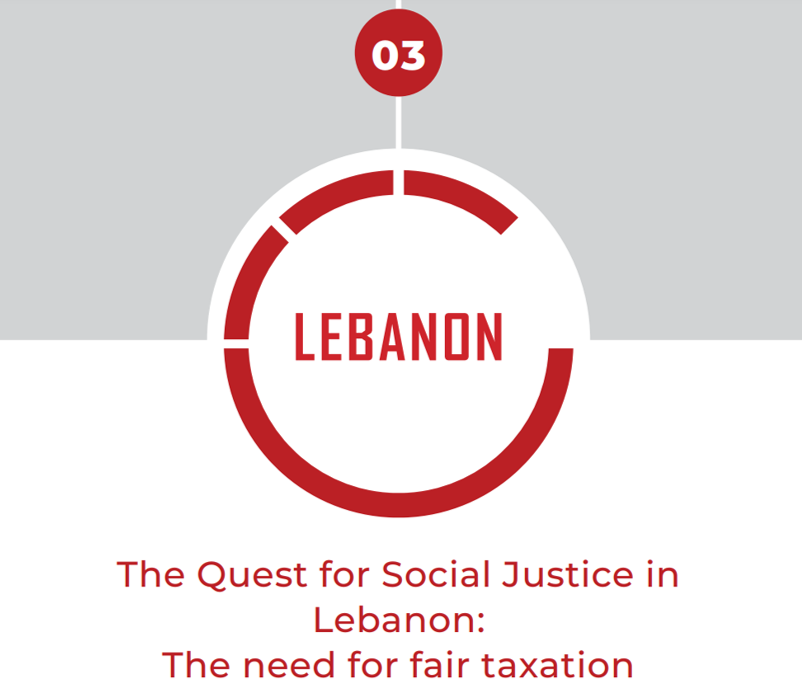

Introduction
Lebanese citizens often complain about the heavy tax burden they face, and they often joke that consuming air will soon be taxed. This popular satire is a very accurate depiction of the tax system in the country. In fact, Lebanon’s tax burden is low compared with similar income level and high income level countries, nevertheless its toll is heavy on most citizens. This joke illustrates the favoritism of public policies in imposing taxes on consumption (indirect taxation) rather than incomes. Citizens also criticize the heavy inequality and hardship they feel they endure in the country especially with escalating internal and external economic, social and political crisis. The high incidence of distributive and functional income inequality is often symptomatic of the absence or weakness of redistribution mechanisms in the economy as well as the quality of public service provision. A principle tool for these mechanisms is taxation systems and their contribution to social justice, whether negative or positive. Why do most citizens feel they carry a heavy tax burden? Does the tax regime in Lebanon contribute to social justice? Which economic patterns does the Lebanese tax system serve? Who are the beneficiaries and injured parties of the current tax system?
This paper aims to answer these questions by examining the Lebanese taxation system from the lens of its economic and political functions. In this regard, the mainstream in the analysis of taxation in Lebanon has focused on examining it from a technical perspective while leaving out its structural aspects, in terms of the parties and objectives it serves. This paper adopts a political economy approach analyzing taxation in Lebanon as part of the whole political and economic system governing the country. Therefore, it does not limit itself to examining the shortfalls of the system in terms of efficiency, tax collection, evasion and avoidance but exceeds them to try to understand the rationale behind the current taxation system. To this end, the paper is divided into four sections. It starts with an overview of the political economy in Lebanon in relation to shaping the post-war system. It examines the post-war economic policies and the context in which tax reforms were undertaken. Then, the paper takes a closer look at the different types of taxes in Lebanon and their revenues and tax administration. It presents, in detail, the taxes enforced and their different weights in terms of total tax revenues and their share of GDP in comparison to other contexts. The third section analyses thoroughly the political economy of taxation attempting to depict the raison d’être of the Lebanese taxation system. It attempts to unfold the function of taxes in consolidating relations of power within the Lebanese system. It also shows the toll taxes take on different stakeholders while pinpointing beneficiaries and injured parties. Finally, the paper concludes with ideas on the path towards establishing tax justice in Lebanon placing it in a context of fair, equitable, inclusive and sustainable economic patterns.
Click here for the full report: The Quest for Social Justice in Lebanon: The need for fair taxation
This is a part of "Report on Taxes and Social Justice in the Arab Countries" studies
Recent publications

